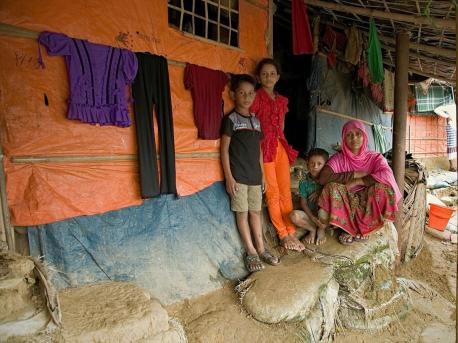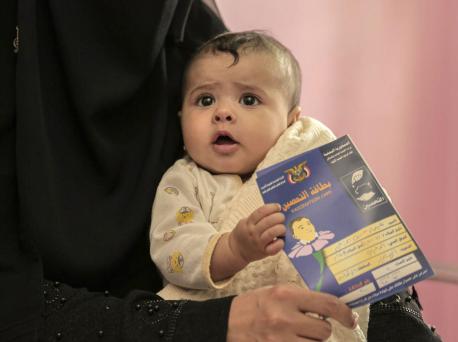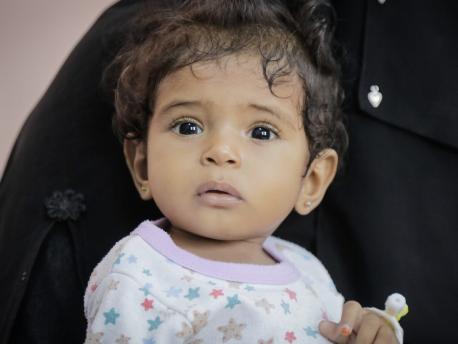
Your Zakat Helps UNICEF Save and Protect Rohingya Children
Monsoon season brings fresh hardships for families already on the brink in Bangladesh. With your support, UNICEF is there to help.
Monsoon season has made life even more precarious for nearly 1 million Rohingya refugees — including more than 500,000 children — living in Cox's Bazar, Bangladesh. Landslides and flooding have destroyed homes, disrupted lives and damaged learning centers and water and sanitation facilities. For these ethnic Muslims, the majority of them chased out of Myanmar by a brutal military campaign in 2017, every day is a struggle to stay alive.
UNICEF provides urgently needed health, nutrition, education, water and sanitation services
Your zakat contributions, combined with the support of other generous donors, have helped UNICEF provide urgently needed health, nutrition, education, child protection and water, sanitation and hygiene (WASH) services to Rohingya children.

On July 13, 2019, a young Rohingya refugee walks to a UNICEF-supported learning center in Omani Site, Camp-21, Teknaf, Cox's Bazar, Bangladesh. © UNICEF/UN0326908/Sujan
In the first half of 2019, UNICEF and partners:
- admitted 8,598 Rohingya children under the age of 5 to 35 outpatient therapeutic programs for the treatment of severe acute malnutrition, with an overall success rate of 96.5 percent
- fully immunized 56,494 infants living in camps and host communities, protecting them against measles, diphtheria and other diseases
- provided 250,000 Rohingya refugees with clean, safe water and sanitation services. Rain-damaged water and sanitation facilities are under repair and 14 piped water networks have been completed, delivering chlorinated water to 84,500 refugees in UNICEF's area of responsibility
- ensured access to education for 192,063 Rohingya children (49 percent girls) between the ages of 4 and 14 in 2,167 learning centers.

Rohingya refugee children share their dreams for the future at a UNICEF-supported learning center at Teknaf, Cox's Bazar, Bangladesh in June 2019. © UNICEF/UN0329395/Sujan
Monthly donors sustain UNICEF's work to provide a better future for Rohingya children
Rohingya children in Bangladesh are growing up in what has become the world's largest refugee camp. The persecution that drove them from Myanmar is not their fault, but they are paying the highest price. Thank you for your generous contributions. With your sustained support, UNICEF can continue providing the services and protection these vulnerable children need to survive and thrive.
Top photo: On July 11, 2019, 11-year-old Jannatul Noor (in orange pants) stands with her family outside their shelter in Jamtoli camp, Cox's Bazar, Bangladesh. Their home was partially damaged during recent monsoon rains. She attends a UNICEF-supported learning center nearby and hopes to return to Myanmar one day. © UNICEF/UN0326726/Sujan
HOW TO HELP
There are many ways to make a difference
War, famine, poverty, natural disasters — threats to the world's children keep coming. But UNICEF won't stop working to keep children healthy and safe.
UNICEF works in over 190 countries and territories — more places than any other children's organization. UNICEF has the world's largest humanitarian warehouse and, when disaster strikes, can get supplies almost anywhere within 72 hours. Constantly innovating, always advocating for a better world for children, UNICEF works to ensure that every child can grow up healthy, educated, protected and respected.
Would you like to help give all children the opportunity to reach their full potential? There are many ways to get involved.





